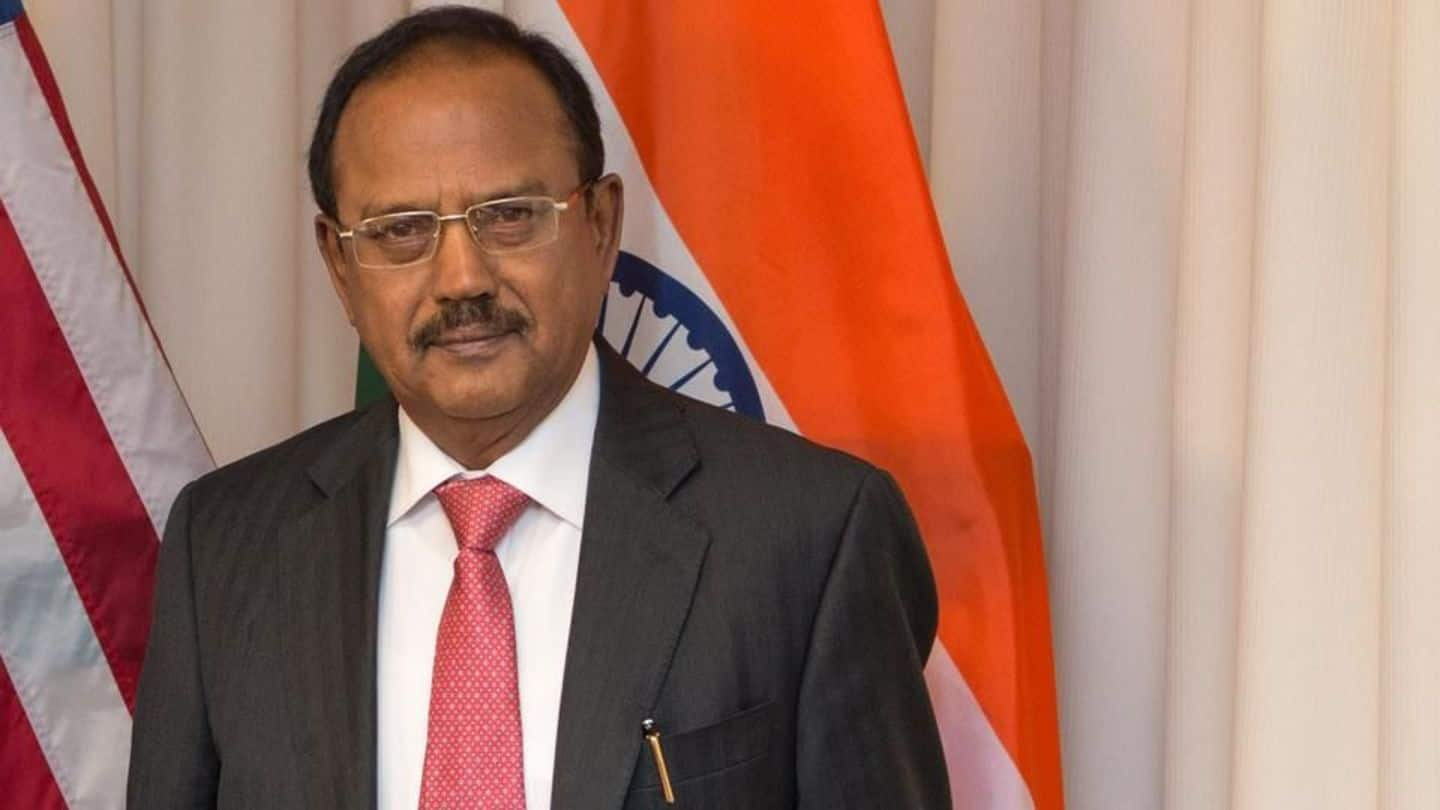
How India's real-life James Bond untied the Doklam knot
What's the story
Indian National Security Advisor (NSA) Ajit Kumar Doval is being seen as PM Narendra Modi's right-hand man responsible for the resolution of the Doklam standoff, on terms favoring India. Doval, a former spy, has emerged as a James Bond-like cult figure because of his hawkish ideology, tactful operations and a background that's straight out of an espionage thriller. Here's all about him.
Profile
Who is Ajit Doval?
Ajit Doval, born in 1945 in Garhwal (Uttarakhand), is India's fifth National Security Adviser appointed on 30 May'14. He graduated from the University of Agra with a Master's Degree in Economics in 1967 before joining the Indian Police Service in 1968. He retired as the director of the intelligence bureau in 2005; he previously headed the IB's operations wing for more than a decade.
Spy games
Doval stopped hijackings, lived in Pakistan, infiltrated Sikh separatist group
During 1971-1999, Doval was involved in the termination of all 15 hijackings of Indian Airlines planes. He lived in Pakistan for seven years disguised as a Muslim. In 1975, Doval played a significant role during the merger of Sikkim with India. In 1988, he infiltrated a Sikh separatist group holed up in the Golden Temple, collecting information that led to Operation Black Thunder's success.
Doval doctrine
Influence of Doval doctrine visible in Modi's foreign policy
In two separate lectures given in 2014 and 2015, Doval outlined his thoughts on defense and foreign policy which form the basis of the Doval Doctrine. Doval favors a hawkish stance on hostile countries and terrorists. Opponents can be dealt with at a defensive, defensive-offensive or offensive level, with morality having no consideration. He favors the defensive-offensive approach; visible in 2016's surgical strikes in Pakistan.
Negotiations
Doklam resolution a result of Doval's parleys with Chinese NSA
According to government sources, Doval played a major role in the Doklam standoff's resolution. Doval met his Chinese counterpart, State Councillor Yang Jiechi, in Hamburg to start negotiations. They made their first breakthrough during the July 27-28 BRICS NSA meeting in Beijing. The parleys between both men continued over the phone. This culminated in the standoff's resolution on August 28.
Important anecdote
Doval-Yang shared terse exchange during negotiations
Doval didn't back down when Yang claimed Doklam didn't belong to India. He reportedly replied to Yang that it wasn't Chinese territory either, implying it belonged to Bhutan. Doval shot back: "Does every disputed territory become China's by default?" The sharp exchange was followed by further negotiations, in which Indian Foreign Secretary S Jaishankar and ambassador to China Vijay Gokhale also played a role.
Information
Conclusion
India always wanted to use negotiations with China to lead to an eventual mutual troop withdrawal at Doklam. China had disagreed, telling India to withdraw troops first, then sit on the negotiation table. In the end, thanks to Doval, India got its way.